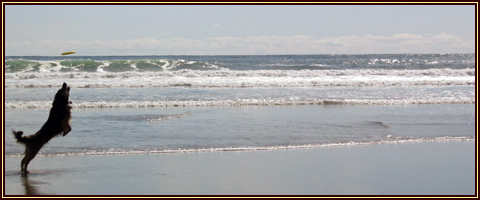The Symptoms Of A Food Allergy In Dogs And Ways To Treat It
It’s only recently been learned that canines, much like humans, can suffer from allergies to particular foods or foods in a particular food group. Dog allergy to food is among the five most commonly found types of dog allergies, though the animal is usually born with the condition, a dog allergy to food might develop at any time throughout their lifetime.
Signs and Causes of Food Allergies in Canines
Your dog will frequently have reactions to the diverse sorts of foods they get. Quite often, they only suffer from a stomach ache which can effectuate vomiting and diarrhea. Allergies to food are different however, rather than just suffering from a stomach ache, it will produce itchy skin in canines in addition to the previously stated indicators of food allergies: swelling, vomiting and diarrhea. The dog’s itching and scratching could bring on peeling skin, eczema, hot spots and loss of hair. In a few cases, additional signs of food allergies might consist of losing weight, restlessness and even anger.
In a dog dealing with a food allergy, the immune system will overreact to a particular ingredient that it normally tolerates triggering an allergic response. An allergy to food is normally caused by proteins from dairy foods, wheat and sugars as a result of eating scraps from the table. Though proteins are the most likely cause of an animal’s food allergy, any variety of food or food constituent can cause an allergic reaction.
How to Spot Dog Allergies to Food
Only a few years ago, an elimination diet was the lone method available to check if an animal was being affected by allergies to food. The animal hypoallergenic dog food constituents found in the preceding diet for a period of 2 or 3 months. Nowadays, the diagnosis can be done by a veterinarian employing a quick food allergy test that involves laboratory testing done on a small amount of blood drawn from the dog.
Ways to Treat a Food Allergy in Dogs
The sole food allergy cure is avoidance of the food component or food that’s the source of the allergy. The best kind of food for dogs dealing with allergies to food would be hypoallergenic dog food having all-natural ingredients. Hypoallergenic dog food can be served to a canine for the rest of his life with no fear of your dog’s food allergy re-emerging.
Because of the dog’s scratching and itching, it may perhaps be necessary to address dog skin problems besides. A vet will generally recommend using antihistamines and skin lotion. But because using antihistamines for a dog allergy could produce harmful side effects, a natural cure for dog allergies to food is a safer alternative. There are plenty of herbal and homeopathic forms of treatment being offered that have been demonstrated by canine owners to offer outstanding results.







